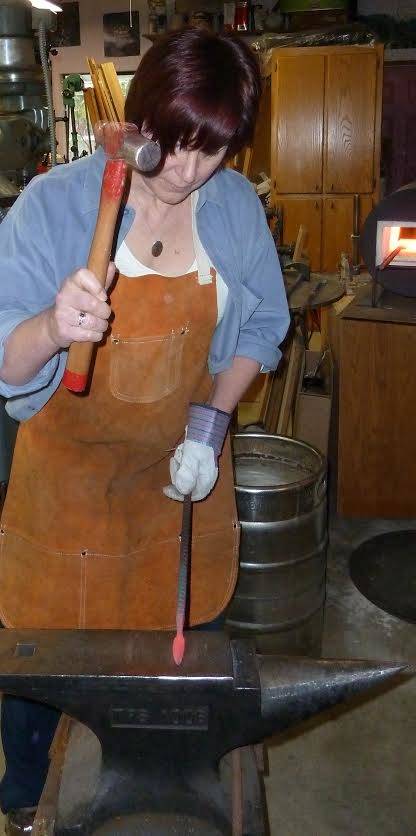Author Claire Gebben, a Mercer Island resident for the past 32 years, has recently been named a 2019 Next Generation Indie Book Awards finalist for her latest work, “How We Survive Here: Families Across Time.”
The Next Generation Indie Book Awards honors independent authors and publishers from across North America.
Gebben’s book, one of four other finalists in the Indie Book Awards’ Memoir category, recounts her journey into genealogy and the making of her 2014 historical novel, “The Last of the Blacksmiths.”
“It’s a very meta,” Gebben said, “it’s really a book about writing a book.”
For “The Last of the Blacksmiths,” Gebben used the letters of her great-great grandfather, a 19th-century German immigrant to Cleveland, Ohio, as her source material, bringing to life a fictionalized first-person narrative of the very real Michael Harm. In pursuit of a better life, a teenaged Harm moved from the Bavarian Rhineland to America and worked as a blacksmith, fashioning horse carriages with iron plating and other metallurgical necessities.
In “How We Survive Here,” Gebben now brings herself into the fold as a character, sharing her personal experience of digging into her family’s past, starting with the fateful discovery of her great-great grandfather’s letters in an attic.
Gebben worked closely with her German side of the family to translate documents and wander the European villages where her ancestors grew up. In retelling her genealogical quest, Gebben said she hopes to underscore the importance of learning and preserving one’s family history.
“History isn’t linear in the sense that we think … it’s full of similar lived experiences,” she said. For Gebben, going beyond census data points and discovering the voices of ancestors enriches and contextualizes one’s own life.
Gebben said her ancestor’s letters paint something far from a static portrait of a person; they were brimming with emotion.
In one example, her ancestor wrote a moving entry about his recently deceased fourth child, Herman, who died of “summer complaint,” a colloquial term for dysentery. Gebben said it was the first time many in her family had even heard about their great-great grandfather having a fourth child.
Gebben, who earned a Master of Fine Arts in creative writing, said she’s wanted to be a writer since age 6 but never imagined her first works would involve her family tree.
“History was not my subject … I felt it was almost always about wars, calamities, politics, that sort of thing,” Gebben said. “But I really took an interest when I started to see people’s stories throughout time, people just like me.”
Growing up, Gebben said she was dismissive of the stories her father — the family’s de facto chronicler — shared about her great-great grandfather, thinking that his larger-than-life stories were anomalies in an otherwise humdrum ancestry.
When she analyzed the lives of her other ancestors, however, she said she realized the truth is stranger than fiction.
“I discovered I couldn’t make up a better story than what really happened,” she said.
Gebben’s book can be found anywhere books are sold; Island Books has autographed copies of “How We Survive Here” on its shelves.



